Indeed, history is nothing more than a tableau of crimes and misfortunes. ~Voltaire
A Sad Day in History
April 30, 2020 marks the 45th anniversary of the Fall of Saigon. An ignoble day in which the communist North Vietnamese completed their take over of South Vietnam.
As a Vietnam War veteran, I well remember that day. After the completion of my military service in 1972, following a brief visit home, I relocated to Southern California where I would spend two years kicking around, scratching for employment. With a weak economy and no higher-level skills, I finally moved back to Wisconsin and stayed with the folks until I was able to land a decent paying job.
I ended up working with a company in northern Illinois, whose owner, a very decent man, went out of his way to hire Vietnam Veterans. Not a practice enthusiastically followed during that time.
I started out working in the factory, in final assembly. In our immediate area almost half of us were Vietnam War veterans, Army, Navy, Marines and Air Force, we were all there. We seldom talked about the war; it was not a popular topic during that time, not even with each other. But we did kid one another about our particular branches of the service. Mostly good natured, but it could heat up at times.
The fall of Saigon was not a surprise to us…or anyone else for that matter, but when it finally happened it created a somberness, all across our nation, and certainly in our little world on that factory floor.
We were the lucky ones however as the South Vietnamese, who we were fighting for, were brutally punished by their North Vietnamese conquerors. Even the Vietcong, allies of the North Vietnamese, were pushed off to one side and trodden under. North Vietnam, with the charismatic Ho Chi Minh having passed on, carried out the aftermath of the war as a cold, vengeful master.
Years in the Making
The origins of the “American War” in Vietnam can be traced back to the Truman administration. However, the root cause of the war was French colonialism and our eventual support of it.
Truman got roped into helping the French when communism was taking over many nations in post-World War II Europe. He agreed to help France in Vietnam, if France would crack down on the communist party in France, which they did.
Eisenhower maintained Truman’s policy in Southeast Asia and little by little, America unleashed the dogs of war. By 1965, after the Gulf of Tonkin fiasco played out, the U.S. was in hook, line and sinker.
The war lumbered along, with increasing carnage on both sides of the conflict. The U.S., a military powerhouse, found the North Vietnamese and the Vietcong to be a tenacious foe. Bank rolled by Red China and the Soviet Union, the communist regime proved once again that the value of victory surpassed any cost of human sacrifice, in their world.
Soon other nations became embroiled in the conflict as Lyndon Johnson’s “All Nations” policy dragged South Korea, the Philippines, Thailand and Australia into the quagmire.
Regime after regime in South Vietnam collapsed, as corruption, military defeat and political, religious and ethnic turmoil played out. In the meantime, Americans at home who were scratching their heads regarding the logic of the war became increasingly disenchanted.
After the massive North Vietnamese TET offensive in early 1968, support of the war in the United states began to unravel. Although a significant military defeat for the communists, Americans felt, not without reason, that they were misled as to the progress of the war.
By 1970, when I served in Vietnam, Richard Nixon had assumed the presidency and, although he claimed a policy of “Peace with Honor” both he, and his architect of the war, Henry Kissinger, knew the war was already hopeless. The American people had had enough.
Without getting into the ensuing politics of the war, suffice to say that the eventual American withdrawal led to the collapse of South Vietnam. On April 30th, 1975 Saigon (Now Ho Chi Minh City) fell to the North Vietnamese army.
The Aftermath
As previously noted, the vengeful North punished their South Vietnamese brethren viciously, for many years to come. Re-education camps, executions, beatings, torture, and forfeiture of rights were all visited upon the hapless citizens of South Vietnam.
Those who could, fled. Between 1975 and 1995 close to two million Vietnamese fled the vindictive communist regime. Many of those who fled perished in the process, victims of murder, drowning, starvation and disease. Those who did make it found themselves scattered all over the globe, with many ending up in Australia, Europe and the U.S.
The Vietnamese who have made the United States their home are model citizens, contributing much to the melting pot, that we are. A hardworking people who appreciate the benefits of education, culture and service; our gain is communist Vietnam’s loss.
As time has gone on, the communist regime has become more and more capitalistic. The underlying work ethic of the Vietnamese cannot be repressed by the false ideology of a failed system, and for all intents and purposes Vietnam is migrating into the enlightened camp, albeit with much work yet to be done.
Dedication
This article is dedicated to the hundreds of thousands of Vietnamese who had the courage to leave their homeland for the price of freedom. And also to those millions, from all nations, who perished during the war and it’s aftermath.
In Closing
I didn’t want a monument,
Not even one as sober as that vast black wall of broken lives.
I didn’t want a postage stamp,
I didn’t want a road beside the Delaware river proclaiming Vietnam Veterans Memorial Highway.
What I wanted was a simple recognition of the limits of our power as a nation to inflict our will upon others.
What I wanted was an understanding that the world is neither black and white, nor ours.
What I wanted was an end to monuments.
~Author, unknown
Click on any photo to enlarge
You are welcome to share this article, as written and in its entirety. Copyright protected, all rights reserved © Joe Campolo Jr
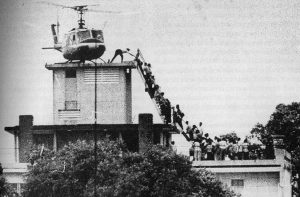
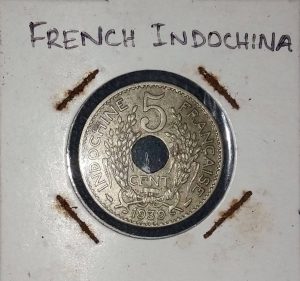
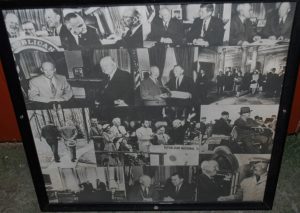
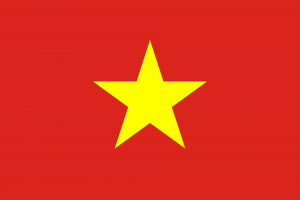
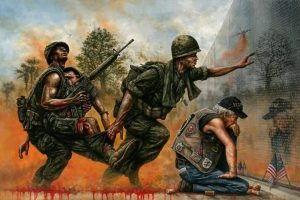
Joe,
You are leaving out the involvement of troops from New Zealand, who also fought alongside us.
Many were killed or wounded!
Thanks
The omission was unintentional, thanks for sharing the information.
Joe, Once again you wrote an amazing article. However, some memories are better left alone. Oct 69 to Nov 70 was “my time” in the Nam.
As noted some good time some others…not so…
Thanks Bro…
Understand Jim, glad you like the story. Welcome home.